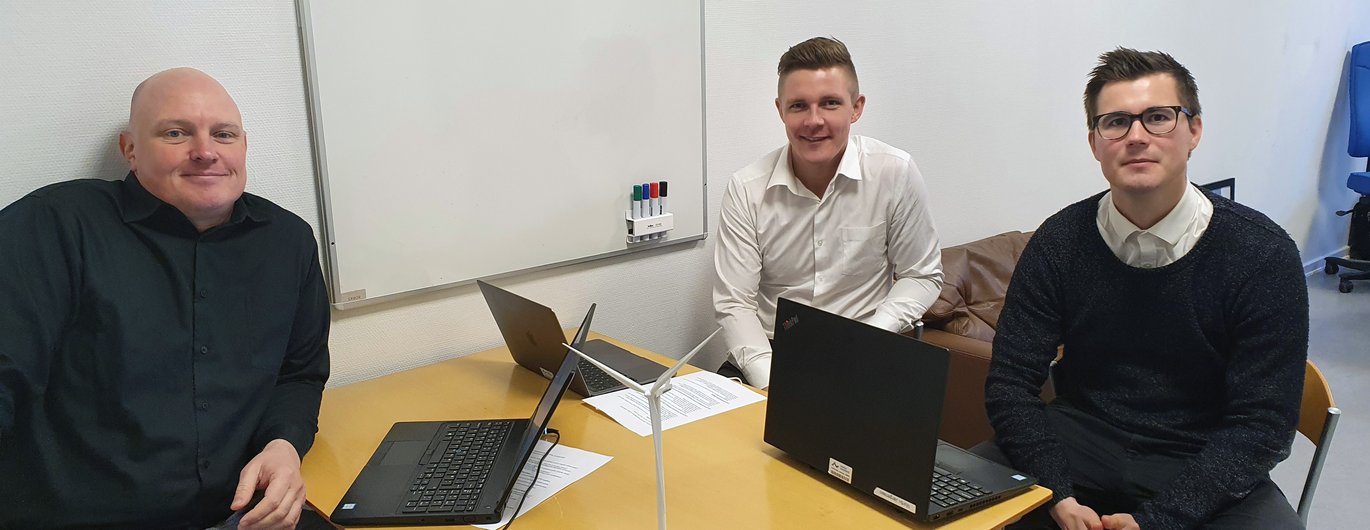When does knowledge spill over to competitors through suppliers?
B2B researchers Chris Ellegaard, Martin Jørgensen and Jim Pedersen from the Department of Management aim to answer this question in a research project with Vestas

OEM companies in industries such as automotive, consumer electronics and green energy are relying on their key suppliers to develop and produce innovative components and systems. For example, Aarhus-based Vestas, one of the world’s key OEMs in the wind turbine sector, relies heavily on suppliers to develop and produce innovative solutions for supplied products such as gear boxes, electronics and various types of mechanical systems. Because the supplied systems or components have to fit into the overall wind turbine design, such developments often happen in close collaboration between Vestas and their suppliers. In such collaborations, Vestas have to share their knowledge on systems technologies, overall wind turbine design and logistics/production processes among others with their key suppliers. Spillover then happens when a supplier decides to take the Vestas knowledge and use it in their products and systems delivered to other customers, some of them likely to be Vestas competitors.
With an annual spend of more than EUR 7 Billion on supplied parts and systems, this is a key strategic issue for Vestas who want to understand if, when, how and with whom knowledge spillover happens in order to be able to manage it. Chris Ellegaard, professor at the B2B group of the marketing section at the Department of Mangement explains: “We have collaborated with Vestas on various research projects for more than five years. It is really important to us in the B2B group that our research is highly relevant to companies and managers, and that we are continuously in close interaction with industry.”
In this particular project on knowledge spillover, Chris Ellegaard and Niels Pulles from University of Groningen made a survey design, where they first asked Vestas key suppliers (approximately 300 responses) about various aspects connected to spillover and then got the Vestas manager responsible for that particular supplier to also respond to a series of survey questions. In addition, to assist in the interpretation of the survey results and provide depth to the findings, they complemented the survey with interviews at Vestas and a qualitative inquiry known as a World Café. 30 Vestas managers participated in the World Café in November 2020, which had to be held via Teams due to the Corona restrictions. In the virtual World Café, Vestas managers from purchasing, logistics/production, product development and law rotated randomly between four tables discussing various aspects of knowledge spillover. Martin Jørgensen and Jim Pedersen from the B2B group each ran a discussion table, with Niels Pulles and Chris Ellegaard running the two other tables.
Chris Ellegaard explains, “Unfortunately we could not have the Café at the Vestas HQ, but despite being online, we got some really good results out of it. It is a good way of getting inside the heads of 30 expert managers within a short time span (3 hours) regarding some managerial topic. Niels Pulles has been involved in running similar cafes with several major Dutch and German companies, including Volkswagen and Albert Heijn. And we thought that the same method would be perfect for our spillover project with Vestas.” The researchers are presently in the process of analysing the data.
For more information please contact:
Professor Chris Ellegaard
E-mail: chrel@mgmt.au.dk
Phone: +45 20784250